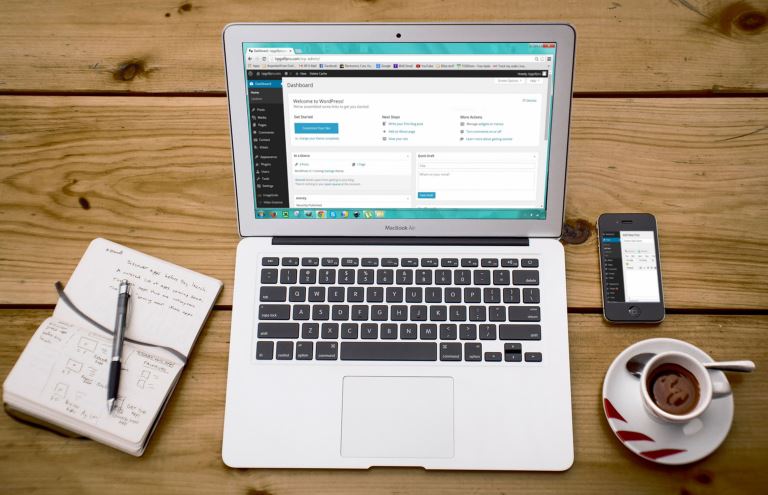
What are the Must-Know Tips for Website Non-CMS?
pThere are mustknow tips about website nonCMS that everyone should know about know how big your website is how frequently you change your website content your budget website speed time customization control coding maintenance and security Keep readin
Everyone should know the must-know tips; that's why I call them the must-know tips. I have done outstanding research to make this article as informative as possible. Learn the must-know tips about non-CMS websites as you read on.
There are must-know tips about website non-CMS that everyone should know about; know how big your website is, how frequently you change your website content, your budget, website speed, time, customization, control, coding, maintenance, and security. Keep reading for finer details.
Learn more about the differences between a website non-CMS and a website CMS.
What are the Must-Know Tips for Website Non-CMS?
Settling for a non-content management system can be challenging and frustrating. If you don't have a list of what you require, you might choose items that will not benefit your Non-CMS. You should therefore prepare a properly outlined requirement list.
Below are the must-know tips for website non-CMS:
1. How Big is Your Website
When using a website Non-CMS, the size of your website matters. Website Non-CMS works best with a small content of around four pages. It is challenging to preview previous pages when using a website Non-CMS. When you make a mistake, or you want to add content, you will have to copy and paste the codes you used while creating the website for you to change it. It is, therefore, safer and more economical to use the website Non-CMS when you have a small website. Before purchasing the Non-CMS, check the size of your website.
2. Your Budget
Selecting a website largely depends on your budget. The website size will dictate how much you will use and what type of website to choose. When your website is small, purchasing the website Non-CMS will make economic sense, but the same will be expensive when you have a big website. You should confirm the amount of money you want to spend and the size of your budget before migrating to the website Non-CMS.
3. How Frequently Do You Change Your Website Content
If your business is consistent and rarely changes, the website Non-CMS will benefit your business. It is hard to edit or add new content when using the Non-CMS; thus, if your content does not require many changes from time to time or you can only make one to three shifts in a year, you should settle for the Non-CMS.
Therefore, before purchasing any website, check the content you wish to use, whether it requires editing or not. Whether you will need to update it often or not? If your answer is negative, then the website Non-CMS will be your perfect choice.
4. Time
Updating your website takes time. Thus before buying any form of website, you should check if you have time to update your website. If you do not have the time to update your website and you will outsource a website developer to update it, then a website Non-CMS is the best option. In addition, you should know that for a website Non-CMS, you will have to design, code, and set up your website from scratch, which takes time; thus, if you settle for Non-CMS, you will have to exercise patience.
5. Website Speed
Speed is crucial for any website user. No one will go for a website that is slow and has issues. Developers make fast websites; thus, before settling for the Non-CMS, confirm if the developer has made a quicker website that works smoothly.
6. Customization
With a website Non-CMS, changing a design is tricky as you will have to do so manually and edit the sites to make any changes. When you go for the Non-CMS, you should choose a durable design at the onset because making any changes might be impossible.
7. Control
Control is crucial to any website owner. Non-CMS website offers you complete control over your website. With full control, you can permit or restrict what goes on your website.
What is the Difference Between CMS and Non-CMS Websites?
Most websites are made using HTML or the cascading style sheets coding language. The difference will be if the website was coded from scratch or if the webpage used CMS to put the pages together. Below are some differences between a CMS website and a Non-CMS (HTML) website:
| CMS Websites | Non-CMS Websites |
| CMS can use a pre-built template to launch web pages. | You will have to code from scratch to build a web page |
| It is faster as it uses the pre-built template | Slower as you will have to build from scratch, and you will need coding knowledge. |
| Offers tools that can edit, publish new pages and add new content. Suitable for a more dynamic website. | It does not provide updating features, editing, or adding content. Most ideal for a simple website that requires one or two pages |
| A CMS website is cheaper as it is pre-built. | More expensive as you need to start from scratch, and sometimes you will have to outsource others to help you program the website. |
| It is easier to change a design or what you don't like in the website, as CMS has interfaces that can edit. | It is difficult to change anything as you must do it manually. |
| It is easier to preview your website and make necessary changes. | It is hard to preview since you must copy and paste your HTML codes to preview a page. It is also challenging to make changes since you must go through your coding to look for the anomaly. |
| You can update the site on your own | You will have to outsource a developer to update the site. |
| With a CMS, you can customize the website to what you want. | Limited customization as making changes is complicated. |
| You will be responsible for all the maintenance. | The website developer will oversee all the maintenance, security, and backups. |
The above differences don't mean that any is better than the other; I want you to be guided appropriately. The type of website you settle on, whether CMS or non-CMS, will highly depend on your objectives.
What you Should Know About Designing Non-CMS Websites
Non-CMS websites allow users to update their content, which is a limitation because it requires technical expertise. Developers don't bother about how or when a product will be updated; they only inform clients about what they are getting into against other options(CMS). In most cases, there is the signing of a contract between you and the client stating that the service is offered as it is and that any other additional services will require another contractual agreement.
You should know that with a Non-CMS website comes extensive coding. You will need to have coding knowledge. If you lack coding knowledge, you will have to outsource a web developer to do the work for you. Website Non-CMS requires little or no maintenance. Once you launch the website, you will not need additional updates and regular backups. Having a website developer and using the website Non-CMS will save you time and money.
Security is an essential aspect of any website. Before choosing the website Non-CMS, check its security features and research how prone it is for hackers to access it. You should secure your content by every means possible. Thus, the Non-CMS website should be secure.
Conclusion
In every business, you must be prepared and organized. Always know what you have at hand and what will boost your non-CMS to make a sound decision before investing in it. Have a good list to avoid acting in vain, and add more features as your audience grows. We have given you some of the essential tips to look out for before purchasing a non-CMS website and the difference between CMS and Non-CMS so that you can make a sound decision. For effective non-CMS website services, reach out to Guru solutions.








